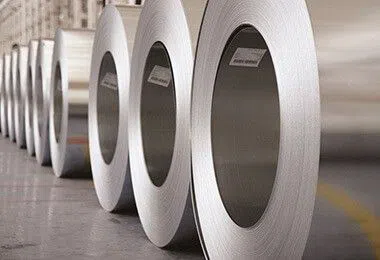3003 h26 aluminum coil is a conventional product of aluminum-manganese alloy series, with good formability, solubility and corrosion resistance. It contains silicon Si: 0.60, iron Fe: 0.70, copper Cu: 0.05-0.20, manganese Mn: 1.0-1.5, zinc Zn: 0.10, others: 0.05 (total 0.15) and aluminum balance. Due to the addition of manganese, 3003 has excellent anti-rust properties, also known as anti-rust aluminum alloy. H26 refers to the annealing of parts to 3/4 hardness after work hardening, which is softer than H28 and harder than H24.

3003 H26 aluminum coil has tensile strength (25 ° C MPa) of 170-210, yield strength (25 ° C MPa) 145, hardness 500kg force 10 mm 40, ball elongation 1.6mm (1 / 16in) 8-16 And the maximum shear stress MPa95. 3003 aluminum coil has good corrosion resistance, close to industrial pure aluminum. Even in dilute acids, it has good corrosion resistance to the atmosphere, fresh water, sea water, food, organic acids, gasoline, and neutral inorganic salt solutions. In the cold-deformed state, 3003 aluminum alloy has a tendency to flake and corrode. The greater the deformation, the more severe the spalling. Due to the uneven color after anodizing, anodizing is usually not performed.
The strength of 3003 aluminum coil is about 10% higher than 1100 aluminum coil. The roll has excellent formability, solubility and corrosion resistance, and can be used to process parts with good formability, high corrosion resistance and weldability, or parts with these characteristics and higher strength exceeding 1xxx series Alloys, such as kitchen utensils, food and chemical product processing and storage equipment, tanks used to transport liquid products, and various pressure vessels and pipes. It is also commonly used in plate welding of ships, warships, vehicle materials, automobiles and aircraft, pressure vessels that require strict fire protection, refrigeration equipment, TV towers, drilling equipment, transportation equipment, missile components, armor, etc.




QR Code
